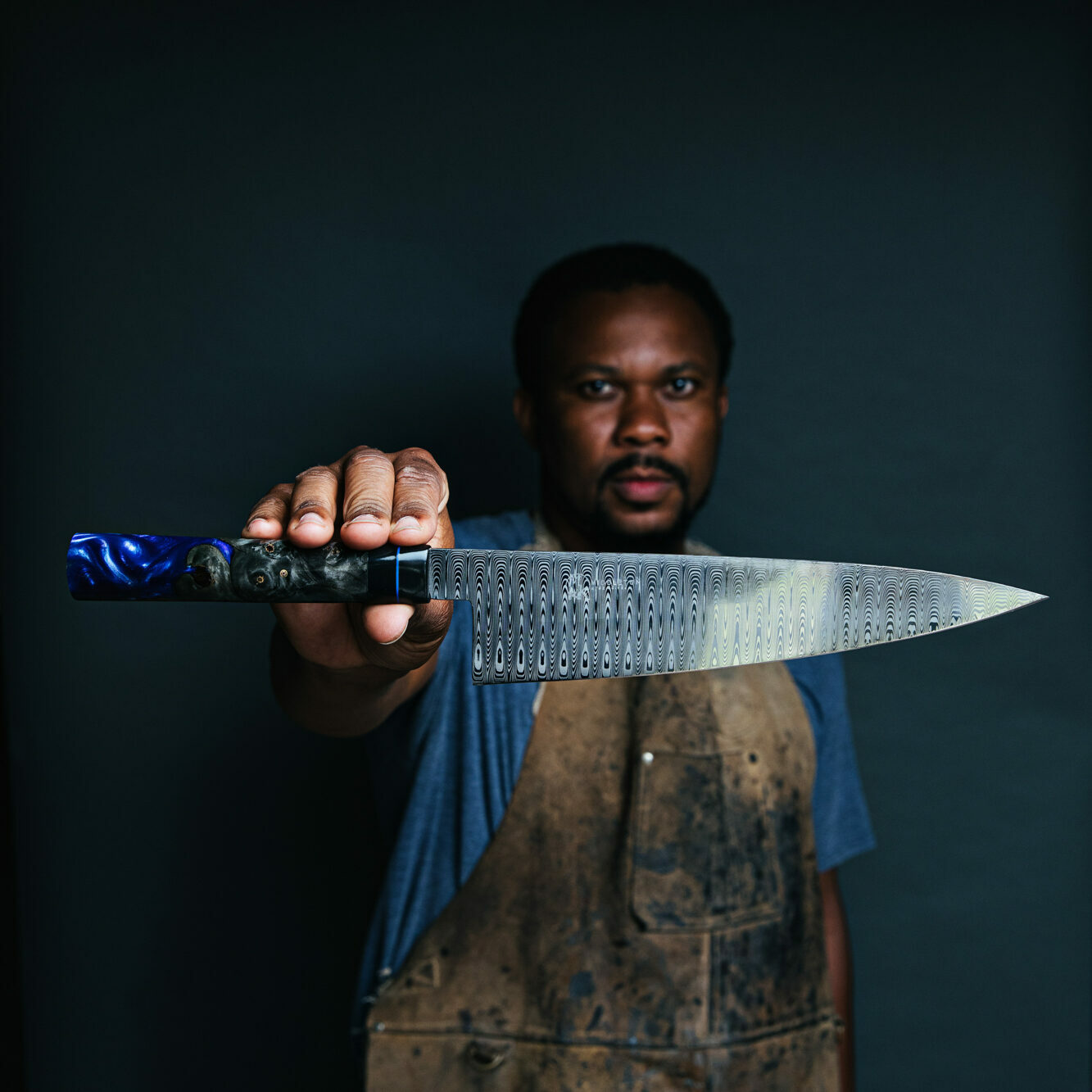Have you had supply chain issues due to COVID?
A little, but I kind of saw it coming, so I stocked up while the market was normal. That was a good thing during COVID because everybody was cooking and shopping!
How do you make decisions about design and quality?
My design decisions always start with what looks good to me. As for quality, there are things you should never do to a knife, but I know people will do it anyway, so I torture-test my knives then re-engineer them. I always say the best tools you have in your toolbox are mistakes.
What are the most significant production challenges?
Demand. I got some great advice a few years ago that blew my mind: I met the president of Pappy Van Winkle and asked him how he got so successful. He said, “Keep the demand high and supply low,” and walked off. I had to figure out how to do that and grow at the same time.
How did you find that balance?
I’m just now getting to the point where I’m okay saying no. I tell people money comes, and money goes, and it will come again. Time just goes. If you’re only chasing money, you’re losing time. There is pressure, though – I have to sell and create. I have two kids, and I have sacrificed so much away. I can’t get that time back, but I am showing them something important about work ethic. As a Black man, I don’t want my kids to be inspired by TV. I want them to be inspired by me.


What helps ease me is my faith. I don’t get a regular paycheck every week, so I have to have faith somebody will come to my website and buy something. And I tell other entrepreneurs to make opportunities instead of waiting. Knock on doors, do pop-ups, and see if a contact will let you send something to try. Create a space where you can have that communication with potential clients.
What are the biggest challenges that are out of your control?
Sales are totally out of my control. I can do all the marketing in the world, but somebody has to decide to buy something. Failure is also out of my control, so I have to be okay with it. If I’m getting ready for an event like Wine + Food and I make 50 knives but don’t sell anything, I’ve sacrificed time from my family, and I’ve drawn money out of my account to produce. I know they’ll sell somewhere down the line, but it can still look like failure at the time.
What are the biggest challenges within your control?
Skill. Making a knife is not easy, but I know how to do it. I have almost 20 years in; I can do this with my eyes shut.
What resources have you found most helpful as you grow your business?
Friendship. If I create relations or an atmosphere of community, we can come together and move toward the same goal. I treat people with respect, and I’m known for being a man of integrity. People hear that, and they want to help me. For example, Eater heard about me and came to my house for four days to make a documentary (How Bladesmith Quintin Middleton Hand-Forges Damascus Steel Knives). Bloomberg and Ebony magazine also did a video documentary (The Hidden American History Behind a Master Blademaker’s Knives).
How do you navigate relationships with retailers?
I used to have seven retailers, and I’m now affiliated with two. These are people and companies that I like, and the relationship is a win-win. If I didn’t enjoy working with them, I wouldn’t. I want to pick up the phone, enjoy talking to them, and ask about their families. I used to have representation everywhere, but I couldn’t manage my time. The South is fine – everybody knows me, and it’s where everybody is cooking!
What do you look for in a retailer?
They have to be able to speak about the product and be knowledgeable about knives. They have to be able to speak to someone who may not know about knives or what makes my knives different. I have two rules in sales: Sex sells, and performance tells. Meaning, if it looks good, it brings you to the table, and if it performs, it does what I say it’s going to do, it’s going to keep you coming back. That’s true no matter what that product is.
What should businesses like yours expect from retailer relationships?
You should know your value and know who you are as a business and a brand because you’re both bringing something to the table. If my knives bring an audience to your platform, it’s an opportunity for you to sell other products. And the reverse is true.
Photos courtesy of Middleton Made Knives